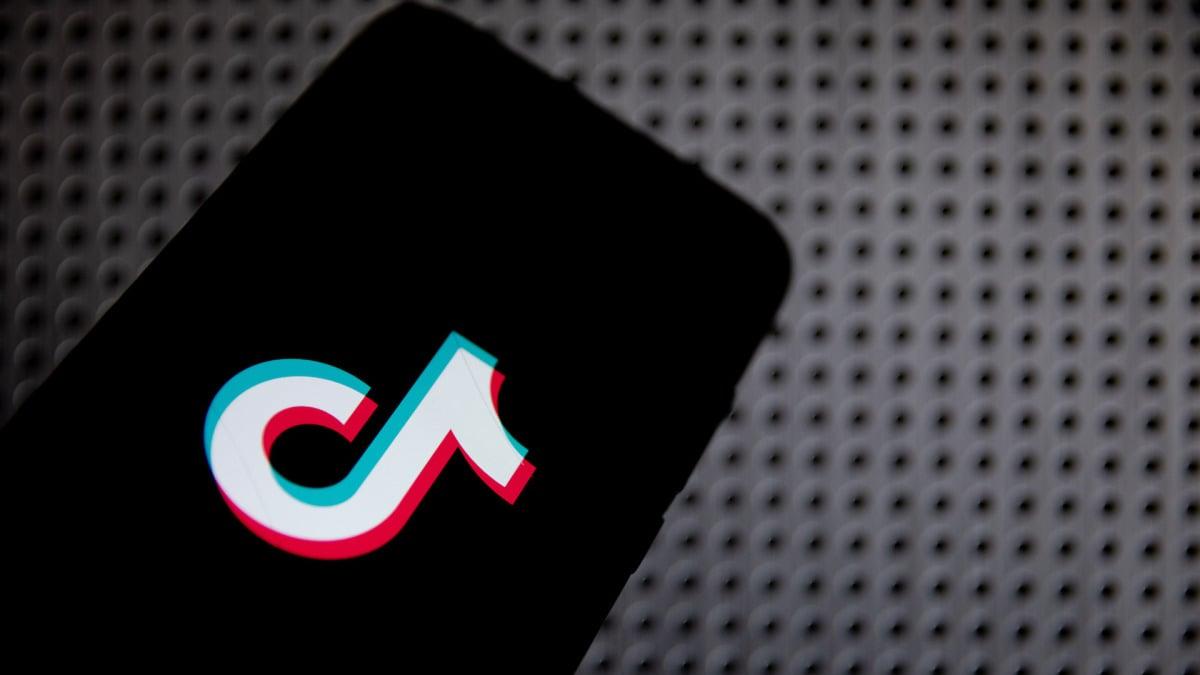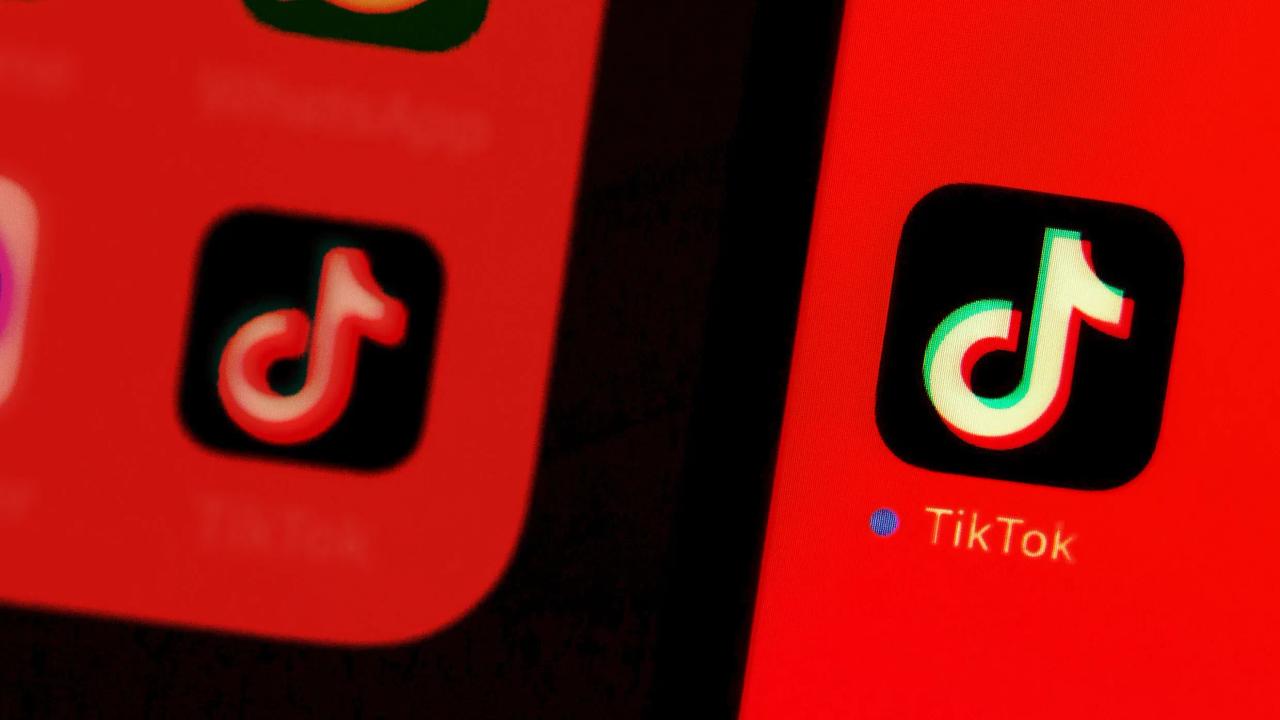Racist AI-Generated Videos Flood TikTok, Exploiting Google's Veo 3 Tool
6 Sources
6 Sources
[1]
TikTok is being flooded with racist AI videos generated by Google's Veo 3
The release of Google's Veo 3 video generator in May represented a disconcerting leap in AI video quality. While many of the viral AI videos we've seen are harmless fun, the model's pixel-perfect output can also be used for nefarious purposes. On TikTok, which may or may not be banned in the coming months, users have noticed a surplus of racist AI videos, courtesy of Google's Veo 3. According to a report from MediaMatters, numerous TikTok accounts have started posting AI-generated videos that use racist and antisemitic tropes in recent weeks. Most of the AI vitriol is aimed at Black people, depicting them as "the usual suspects" in crimes, absent parents, and monkeys with an affinity for watermelon. The content also targets immigrants and Jewish people. The videos top out at eight seconds and bear the "Veo" watermark, confirming they came from Google's leading AI model. The compilation video below has examples pulled from TikTok since the release of Veo 3, but be warned, it contains racist and antisemitic content. Some of the videos are shocking, which is likely the point -- nothing drives engagement on social media like anger and drama. MediaMatters reports that the original posts have numerous comments echoing the stereotypes used in the video. Google has stressed security when announcing new AI models -- we've all seen an AI refuse to complete a task that runs afoul of its guardrails. And it's never fun when you have genuinely harmless intentions, but the system throws a false positive and blocks your output. Google has mostly struck the right balance previously, but it appears that Veo 3 is more compliant. We've tested a few simple prompts with Veo 3 and found it easy to reproduce elements of these videos. TikTok's terms of service ban this kind of content. "We do not allow any hate speech, hateful behavior, or promotion of hateful ideologies. This includes explicit or implicit content that attacks a protected group," the community guidelines read. Despite this blanket ban on racist caricatures, the hateful Veo 3 videos appear to be spreading unchecked.
[2]
Racist videos made with AI are going viral on TikTok
Racist videos that appear to be created with Google's AI video generation tool Veo 3 have raked in millions of views across TikTok, according to findings from the nonprofit media watchdog Media Matters. The AI-generated videos uncovered by the organization are filled with racist tropes, many of which target Black people. Media Matters determined that the videos -- one of which received 14.2 million views -- were generated with Google Veo 3 because of the "Veo" watermark in the corner of the clips. Some users also listed hashtags, captions, or usernames pertaining to Veo 3 or AI, according to Media Matters. Each clip found by the organization lasted just eight seconds, or was "composed of multiple clips each lasting no more than 8 seconds," which tracks with Veo 3's eight-second limit.
[3]
TikTok Flooded With Racist AI Videos, Likely Made By Google Veo 3
(Credit: Thomas Fuller/SOPA Images/LightRocket via Getty Images) TikTok is seeing an influx of AI-generated videos showing racist stereotypes. The videos all appear to be generated by Google's recently launched Veo 3 tool, which can produce detailed AI videos. Spotted by non-profit watchdog Media Matters, a new report shares examples of many racist clips and how it believes Google's Veo AI tool has been involved in the production. The videos were all uploaded to TikTok as individual short clips, but Media Matters has put together many of clips on YouTube with further context about each one. Many of the racist stereotypes depicted are negative toward Black people in the United States. Some of the videos show monkeys, an insult often used by racists, as well as showing Black people as absent parents or criminals. Other videos include antisemitic tropes, while some clips specifically target immigrants. Media Matters also found clips online referring to historical traumas, such as the Holocaust and the Ku Klux Klan's attacks on Black Americans. Be aware that the following video below includes racist content readers may find distressing. Each of the clips are designed to outrage users, encourage reactions, and therefore reach more people through TikTok's algorithm. Exactly how these clips were produced remains unclear, but evidence points toward Google's new Veo 3. The clips are all eight seconds long, which is the current time limit on video production in Veo 3. Some of the clips also have the word Veo in the bottom right corner. Media Matters also found there were multiple references to Veo 3 across the clips with some using it within the captions or hashtags, while some had Veo included in the account's username. Many of the clips also have mistakes associated with AI within the captions. A spokesperson for TikTok told The Verge, "We proactively enforce robust rules against hateful speech and behavior and have removed the accounts we identified in the report, many of which were already banned prior to the report publishing." TikTok's community guidelines say, "We do not allow any hate speech, hateful behavior, or promotion of hateful ideologies. This includes explicit or implicit content that attacks a protected group." However, these videos aren't just limited to TikTok. The Verge found some examples of the videos being viewable on YouTube, while different racist AI-generated videos were found on Instagram by Wired. AI-generated hate speech may be the next big content moderation battleground for the world's biggest social networks and video hosting platforms. If you spot videos that you believe show racist stereotypes or other harmful content, be sure to use that platform's reporting tools to highlight issues.
[4]
Racist, antisemitic Veo 3 AI videos on TikTok, report finds
The nonprofit research organization found that some of the hateful videos had racked up hundreds of thousands or millions of views. One TikTok, labeled "Average Waffle House in Atlanta," featured a restaurant setting overrun by monkeys that throw watermelon and carry buckets of fried chicken. It had been viewed more than 622,000 times when Media Matters took a screenshot of the video. Some of the commenters affirmed the video's racist stereotypes. One person said, "all their mannerisms...to the T..." A different TikTok uploaded in mid June, with at least 835,000 views, came with the prompt, "i asked ai: 'average spirit airlines experience." The video featured monkeys as well, climbing all over the plane. Media Matters said the videos it identified ran a maximum of eight seconds, the length of Veo 3's publicly available text-to-video clips. The videos were also labeled "Veo" in the corner, or used hashtags, captions, or usernames related to Veo 3 or AI. They also included errors, distortions, and nonsense text common to AI-generated videos. Media Matters published a compilation of the clips it identified to its own YouTube account. Mashable contacted both TikTok and Google for comment on the Media Matters report but hadn't received a response at the time of publication. When Veo 3 was released in late May, Mashable tech editor Timothy Beck Werth described its realism as both "impressive" and "scary." Google told Werth that Veo 3's safeguards against misinformation include digital watermarks, and that it employs AI safety guidelines. The AI-generated videos identified by Media Matters included anti-Black stereotypes about criminality, food preferences, and absent fathers. Some featured police encounters with Black people, including one in which a white officer shoots a "Black one" from his car. That clip had been viewed more than 14 million times. The clips also portrayed racist imagery against Asian and South Asian people, and depicted antisemitic stereotypes, including Jewish men chasing after a gold coin. One clip, viewed a million times, featured a gaunt man standing in front of a crematorium, vlogging while at a Nazi concentration camp. "Well everyone is having a great time here," the man says. It's unclear if the minute-long video was made with Veo 3. Another style of AI-generated videos seemed to focus on acting violently toward immigrants and protesters defending them. The videos appear to violate hate speech policies adopted by TikTok and Google. TikTok prohibits hate speech and hateful behavior that "includes attacking, threatening, dehumanizing or degrading an individual or group based on their protected attributes." Google's generative AI policy forbids users from generating or distributing content that facilitates hatred or hate speech; harassment and abuse of others, and violence or the incitement of violence.
[5]
Racist AI-generated videos are all over TikTok, thanks in part to Google's Veo 3 tool
Racist AI-generated videos are going viral on TikTok, according to a new report from Media Matters for America, a progressive watchdog group. The videos, which appear to be created with Google's AI video generation tool Veo 3, are filled with racist tropes targeting Black people, immigrants, Jews, and Asian people. Each video has gained hundreds, thousands, or even millions of views. The nonprofit media watchdog identified the "Veo" watermark in the corner of the clips, along with hashtags, captions, or usernames referencing Veo 3 or AI. Veo 3, launched by Google in May, allows users to generate AI video clips and audio using only a text prompt. Videos made with the tool are limited to eight seconds. Each clip flagged by Media Matters lasted eight seconds or was composed of multiple segments that were each eight seconds or less. Among the clips flagged by Media Matters, one labeled "Average Waffle House in Atlanta" depicted a restaurant filled with AI-generated monkeys holding buckets of fried chicken and watermelon -- a scene steeped in racist imagery. That video, and others like it, amassed hundreds of thousands of views and were met with comments that echoed and amplified the stereotypes.
[6]
Google's Veo 3 AI is generating racist TikToks
Racist videos, seemingly generated by Google's AI video tool Veo 3, have amassed millions of views on TikTok, according to Media Matters, a nonprofit media watchdog. The organization's investigation revealed AI-generated content containing racist tropes, frequently targeting Black individuals. Media Matters identified the videos, one of which garnered 14.2 million views, as Veo 3 creations due to a "Veo" watermark present in the corner of the clips. Additionally, some users included hashtags, captions, or usernames referencing Veo 3 or AI. Each clip discovered by the organization was eight seconds in duration, or comprised multiple segments each lasting no more than eight seconds, consistent with Veo 3's eight-second generation limit. Google launched Veo 3 in May, enabling users to generate AI video clips and accompanying audio from text prompts. Google states on its website that it will "block harmful requests and results." TikTok's platform guidelines prohibit "hate speech and hateful behavior" and specify that the platform "will not recommend content that contains negative stereotypes about a person or group with a protected attribute." "We proactively enforce robust rules against hateful speech and behavior and have removed the accounts we identified in the report, many of which were already banned prior to the report publishing," TikTok spokesperson Ariane de Selliers told The Verge. The Verge located some of the videos highlighted by Media Matters on YouTube, although with fewer views. Wired also found similar racist AI-generated videos on Instagram. Other videos identified by Media Matters included antisemitic content and racist portrayals of immigrants and Asian individuals.
Share
Share
Copy Link
A surge of racist AI-generated videos on TikTok, created using Google's Veo 3 tool, has sparked concerns about AI misuse and content moderation challenges on social media platforms.
Rise of Racist AI-Generated Content on TikTok
A disturbing trend has emerged on TikTok, with a flood of racist AI-generated videos created using Google's recently launched Veo 3 tool. These videos, which exploit the advanced capabilities of AI video generation, have garnered millions of views and raised serious concerns about content moderation and AI safety
1
.Nature of the Offensive Content
The AI-generated videos identified by Media Matters, a nonprofit media watchdog, contain a range of racist and antisemitic tropes. Many of these videos target Black people, depicting them as criminals, absent parents, or using dehumanizing imagery such as monkeys
2
. Other videos feature antisemitic stereotypes, target immigrants, and even reference historical traumas like the Holocaust3
.Identification and Spread
The videos are identifiable by several characteristics:
- An 8-second duration, matching Veo 3's time limit
- A "Veo" watermark in the corner
- Hashtags, captions, or usernames referencing Veo 3 or AI
4
Some of these videos have gained significant traction, with one receiving over 14 million views
5
.Platform Responses and Policies
Both TikTok and Google have policies against hate speech and discriminatory content. TikTok's community guidelines explicitly prohibit "hate speech, hateful behavior, or promotion of hateful ideologies"
1
. Similarly, Google's generative AI policy forbids content that facilitates hatred or incites violence4
.TikTok has stated that they are actively enforcing their rules and have removed accounts identified in the report
3
. However, the rapid spread of these videos suggests challenges in effective content moderation.
Source: Mashable
Related Stories
Implications for AI Safety and Content Moderation
This incident highlights the potential misuse of advanced AI tools and the challenges faced by social media platforms in moderating AI-generated content. It raises questions about the effectiveness of existing safeguards in AI models like Veo 3 and the need for more robust content filtering mechanisms
1
.The ease with which users can create and spread harmful content using AI tools presents a new frontier in the battle against online hate speech and misinformation. As AI-generated content becomes increasingly sophisticated and accessible, platforms may need to develop new strategies to identify and combat these forms of digital manipulation
3
.
Source: The Verge
Broader Impact on Social Media Dynamics
The viral nature of these racist videos also points to underlying issues in social media algorithms and user behavior. The content is designed to provoke outrage and engagement, exploiting the tendency of controversial material to spread rapidly on social platforms
3
. This phenomenon underscores the need for a broader discussion on the ethics of AI use in content creation and the responsibility of tech companies in preventing the misuse of their tools.
Source: Fast Company
References
Summarized by
Navi
[2]
Related Stories
Recent Highlights
1
Pentagon threatens to cut Anthropic's $200M contract over AI safety restrictions in military ops
Policy and Regulation

2
ByteDance's Seedance 2.0 AI video generator triggers copyright infringement battle with Hollywood
Policy and Regulation

3
OpenAI closes in on $100 billion funding round with $850 billion valuation as spending plans shift
Business and Economy








